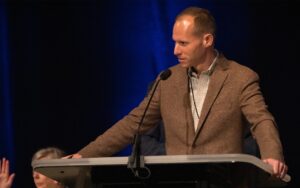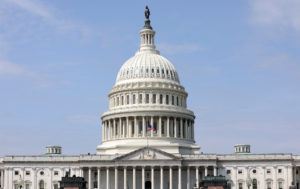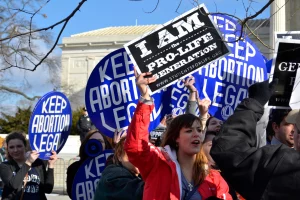
WASHINGTON (BP)–The federal government’s opposition to the medicinal use of marijuana appeared to find a receptive audience at the U.S. Supreme Court Nov. 29.
The justices heard oral arguments in a case involving a clash between a federal law that prohibits the use of marijuana and a California law that permits the use of the drug for medicinal purposes. The Bush administration appealed the Ninth Circuit Court of Appeals’ 2003 ruling that medical use of marijuana in a state that has legalized it is allowed if a patient has a doctor’s permission, the drug is free and there is no interstate commerce involved.
A majority of the justices seemed to be skeptical such use of marijuana could escape Congress’ authority, The Washington Post reported. “Medicine by regulation is better than medicine by referendum,” Associate Justice Stephen Breyer said during oral arguments, according to The Post. “I have to take this case on the assumption that there is no such thing as medical marijuana that is special and beneficial.”
Based on their questions, all of the justices may find there is no exemption from federal law for marijuana as medicine, said Jay Sekulow, chief counsel for the American Center for Law and Justice.
“[I]n intense questioning, the court challenged the idea that the government did not have the authority to regulate in this area,” Sekulow wrote on the ACLJ’s website after observing the oral arguments. “It became very apparent that the Supreme Court was very concerned about in any way easing restrictions on controlled substances like marijuana because of the potential impact that could have on narcotic enforcement laws around the country.”
An opponent of the federal government’s challenge held out some hope the justices would uphold a state’s right to legalize medical marijuana.
The federal government “should have had a rough morning,” but the justices “seemed much more skeptical of [the] legal claim” by patients using marijuana, Timothy Lynch of the Cato Institute wrote in comments on a federalism site on the Internet. “This case should not be a close call, but it is going to be.”
The Controlled Substances Act, a 1970 federal law, bars the use of marijuana and other drugs. California voters, however, approved the medical use of marijuana by passing the Compassionate Use Act in a 1996 referendum.
A three-judge panel of the Ninth Circuit Court ruled in a 2-1 opinion last December marijuana could be used medically by those who grow it or obtain it without cost.
The case, Ashcroft v. Raich, involves two women who cited health reasons for their use of marijuana. Angel Raich has used the drug grown and provided without charge by friends for several serious medical conditions, including a brain tumor. Diane Monson has used marijuana she has grown for severe back pain and muscle spasms.
Opponents of the medical use of marijuana contend the campaign for such use will advance efforts to decriminalize the substance, which is the most commonly abused illicit drug in the country and often leads to the use of more dangerous drugs. Some also argue it will be extremely difficult to distinguish between the medical use and the recreational use of the drug. Advocates of medical use of marijuana contend the illegal drug provides pain relief for some patients that prescription drugs do not.
In addition to California, nine other states have approved the medical use of marijuana: Alaska, Arizona, Colorado, Hawaii, Maine, Montana, Nevada, Oregon and Washington.
In a 2001 opinion, the Supreme Court ruled against marijuana cooperatives, barring them from distributing the drug for medical purposes.
A decision in Ashcroft v. Raich is expected before the court adjourns next summer.
–30–















